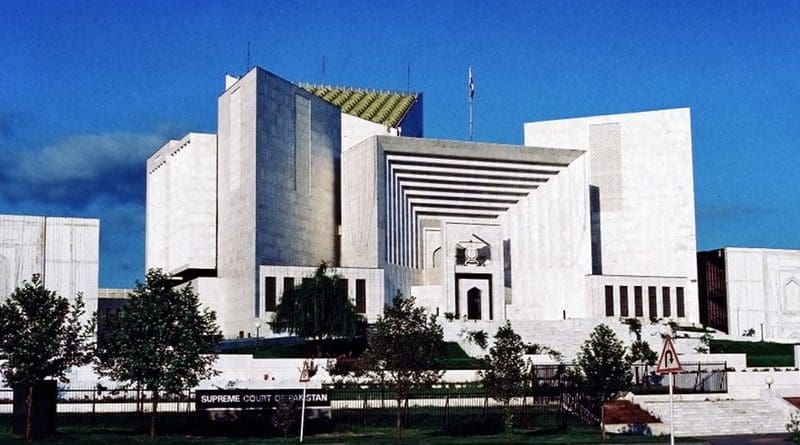Pakistan: Supreme Court Takes Notice Of Child Marriage And Forced Conversions – OpEd
By Kashif Nawab
Leading minority rights advocates have welcomed the recent decision by the Supreme Court of Pakistan to address the critical issues surrounding child marriages and forced conversions of religious minority girls within the country. This development signifies a pivotal step in addressing the longstanding concerns of religious minority communities, including Christians and Hindus, who have endured the harrowing consequences of forced conversions and marriages involving underage girls.
On August 29, 2023, the Supreme Court of Pakistan gave its approval for the hearing of a petition on behalf of Nayab Gill, a 13-year-old Christian girl who had allegedly undergone forcible conversion and marriage to Saddam Hayat, a 30-year-old resident of Gujranwala, Pakistan. This case had been pending for a period of two years before receiving clearance for a hearing.
Shahid Gill, the father of Nayab Gill, recounted that his daughter was kidnapped on May 20, 2021, by Saddam Hayat. Subsequently, she was coerced into converting to Islam and forcibly married to Hayat, who falsely claimed she was 19 years old. However, Nayab Gill’s birth certificate clearly stated her true age as 13. A significant development in the case unfolded on July 1, 2021, when Nayab appeared before Justice Shahram Sarwar Choudhury of the Lahore High Court. During this appearance, she asserted that she had willingly married Hayat and verbally declared herself to be nineteen years old. The case has now been scheduled for a hearing in the near future.
The Supreme Court’s decision to address this case came after a meeting between Bishop Azad Marshall, President of the Church of Pakistan, and Aneeq Ahmed, the current Caretaker Minister of Religious Affairs and Interfaith Harmony, on August 29, 2023.
While the law in Pakistan recognizes sexual intercourse with a girl below 16 years of age, with or without her consent, as a crime punishable by death, courts have sometimes held that the marriage of an underage Muslim girl cannot be invalidated because Islamic law maintains that a consenting girl who has reached puberty can marry.
In March 2022, Justice Babar Sattar of the Islamabad High Court issued a verdict prohibiting the marriage of girls under the age of 18, even if they claim to do so of their own free will. This ruling also prohibits parents from marrying off girls under 18.
In light of these legal developments, activists are hopeful that the Supreme Court will direct the government to establish the minimum marriage age as 18 across the country. Such a move would serve as a robust deterrent against forced faith conversions of underage minority girls.
Ashik Naz, a prominent advocate for minority rights, expressed hope that the court’s decision would lead to increased protection for young girls belonging to minority communities.
Joseph Jansen, Chairperson of Voice for Justice, warmly welcomed the Supreme Court’s decision and expressed the hope that it would set a significant precedent against the heinous crime of child marriage veiled as religious conversion. Jansen drew attention to the numerous cases of minority girls being abducted, raped, forcibly married, and converted to Islam in Pakistan. He lamented that, in many instances, the police and lower judiciary have facilitated such child marriages and faith conversions instead of taking decisive action against the perpetrators.
Jansen also highlighted the long-standing issue of government officials being hesitant to acknowledge that many of these conversions are, in reality, attempts to cover up abductions and child rape.
The Supreme Court’s notice marks a significant stride towards addressing these deeply concerning issues and creating a safer environment for religious minority communities in Pakistan.

